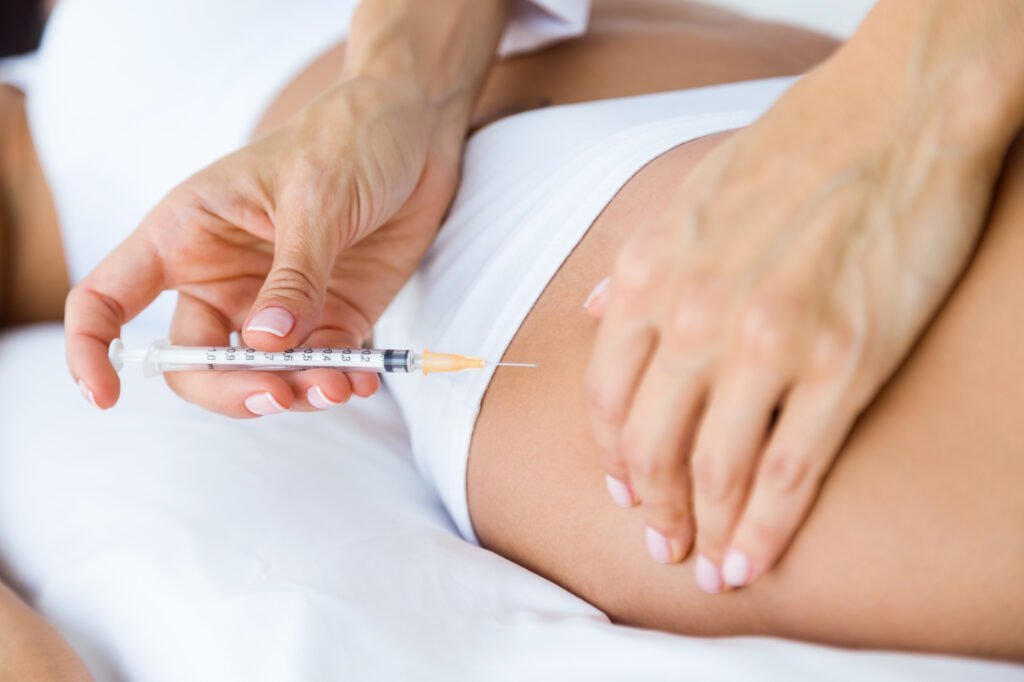Peptide therapy is gaining widespread attention across South Korea as a modern, science-backed approach to anti-aging, immune support, fat loss, and more. But with the growing popularity of these small protein molecules, an important question arises:
👉 Are peptides safe for long-term use?
In this article, we examine the safety profile of peptides, the most commonly used peptides in Korea, and what Korean medical experts say about using them in clinical practice.
What Are Peptides?
Peptides are short chains of amino acids that serve as cellular messengers. In the human body, peptides naturally regulate functions such as hormone production, collagen synthesis, immune modulation, and metabolism.
When used therapeutically, synthetic or bioidentical peptides can stimulate specific biological pathways, making them powerful tools for health optimization and anti-aging.
Are Peptides Legal and Regulated in Korea?
Yes, peptide therapy is legal in South Korea, but usage is strictly regulated in clinical settings. Most therapeutic peptides are classified as prescription compounds, and they must be administered or overseen by a licensed medical doctor.
The Korean Ministry of Food and Drug Safety (MFDS) monitors the sourcing, compounding, and usage of peptide-based therapies, especially those that influence hormonal activity like growth hormone-releasing peptides (GHRPs).
What Korean Medical Experts Say About Peptide Safety
1. Dr. Joon-Ho Kim, MD – Functional & Anti-Aging Medicine Specialist, Seoul
“Peptides are generally safe when properly prescribed and dosed. Unlike hormone therapy, they work by stimulating the body’s natural processes, which reduces the risk of overdose or systemic side effects.”
2. Dr. Min-Ji Park, PhD – Biochemistry Researcher, Korea University
“Therapeutic peptides have a short half-life and are metabolized quickly, which makes them safer than synthetic hormones. However, sourcing quality peptides and proper patient monitoring are essential.”
3. Dr. David Lee, MD – Medical Director, International Wellness Clinic, Gangnam
“In Korea, we screen all patients before initiating peptide therapy. We monitor blood work, growth hormone levels, and patient symptoms closely. When used responsibly, peptides offer a high safety margin.”
Commonly Used Safe Peptides in Korea
| Peptide | Primary Function | Safety Notes |
|---|---|---|
| CJC-1295 (with or without DAC) | Stimulates growth hormone release | Well-tolerated, minimal side effects |
| Ipamorelin | Promotes GH secretion without raising cortisol | Gentle, low-risk for long-term use |
| Thymosin Alpha-1 | Enhances immune function | Used during post-viral recovery or immune deficiency |
| BPC-157 | Promotes tissue healing and gut repair | Safe in short-term cycles |
| GHK-Cu | Skin regeneration and anti-inflammation | Used topically or via mesotherapy |
| Melanotan II | Tanning and libido | Use with caution; higher risk of side effects |
| PT-141 (Bremelanotide) | Libido and sexual function | Requires careful dosing due to potential blood pressure effects |
Reported Side Effects of Peptides
While most peptides are considered safe, improper dosing, poor-quality sourcing, or unsupervised use can lead to side effects such as:
- Injection site irritation
- Water retention (common with GH-stimulating peptides)
- Temporary fatigue or headache
- Hormonal imbalance if overused
- Unwanted pigment changes (with tanning peptides like Melanotan)
This is why Korean doctors recommend using peptides under medical supervision, ideally after lab testing and a proper medical consultation.
Peptide Sourcing: Why Quality Matters in Korea
One of the biggest safety risks with peptides is using unregulated or imported peptides from unverified sources.
In Korea, licensed compounding pharmacies supply medical-grade peptides that meet MFDS and GMP (Good Manufacturing Practice) standards. Top clinics in Seoul and Busan work only with certified suppliers to ensure both safety and efficacy.
⚠️ Avoid black-market or online peptide vendors, which are not legal or safe in South Korea.
Who Should Avoid Peptide Therapy?
While peptides are generally safe, they may not be suitable for:
- Patients with active cancer or tumor history
- Individuals with severe liver or kidney disease
- Pregnant or breastfeeding women
- Those taking immunosuppressive medications (in specific cases)
A Korean medical expert will assess your medical history before starting any peptide protocol.
What Makes Peptides a Safer Alternative to Hormones?
- Peptides stimulate natural hormone production instead of replacing hormones
- Short half-lives mean lower risk of hormone buildup or long-term disruption
- Targeted action on specific tissues or receptors
- Lower incidence of side effects, especially with regulated protocols
- Adjustable dosing based on biomarker feedback
Final Verdict: Are Peptides Safe?
✅ Yes—peptides are considered safe in Korea when prescribed by trained medical professionals, sourced from licensed pharmacies, and used with proper monitoring. Korean anti-aging clinics follow strict medical protocols to maximize results while minimizing risk.
If you’re considering peptide therapy for anti-aging, weight loss, skin rejuvenation, or wellness, consult with a board-certified regenerative medicine clinic in Korea. You’ll receive personalized guidance and access to the highest standards of peptide safety and efficacy.
Schedule Your Anti-Aging Peptide Consultation in Korea
Looking for a trusted anti-aging clinic in Korea? Whether you’re a local or visiting for medical tourism, expert-led peptide programs are available in Seoul, Busan, and other major Korean cities. Start your journey toward safe, science-backed rejuvenation today.




